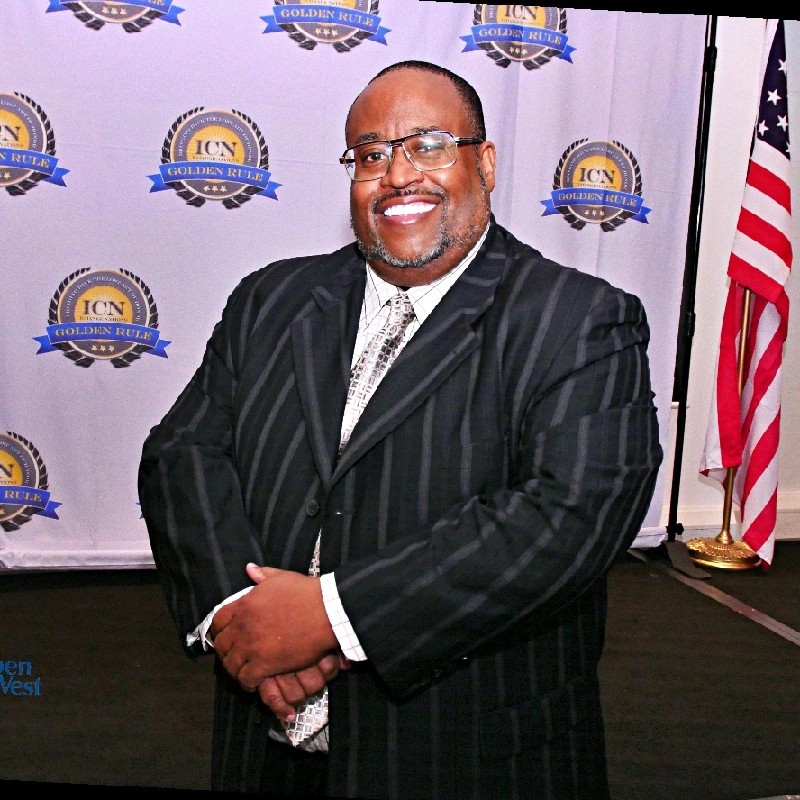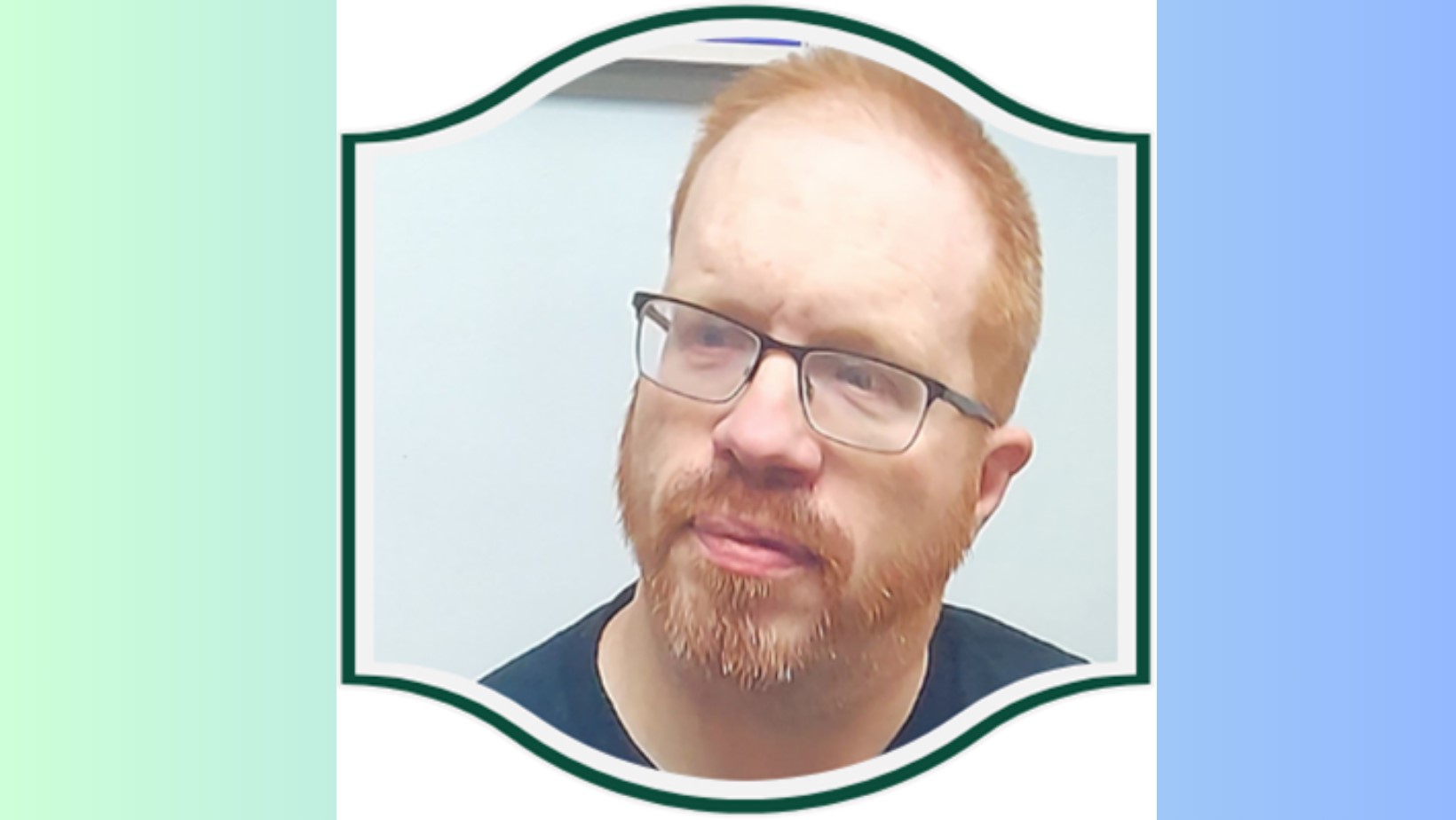Changemaker Interviews
Leadership Lessons from R. Harrison Baxter’s Resilience and Reflection

Leadership isn’t just about making decisions or directing teams—it’s about creating meaningful connections that inspire others to achieve their best. Few embody this principle as profoundly as R. Harrison Baxter, a transformational leadership expert celebrated for his pioneering work in reflective listening and the neuroscience of leadership. Through his unique approach, Baxter has empowered leaders across industries, fostering empathy, resilience, and high performance.
From Adversity to Advocacy: A Personal Journey
Baxter’s commitment to transformative leadership is deeply rooted in his own journey. Growing up in the Bronx during the 1970s and 1980s, he witnessed the devastating impacts of the crack epidemic, poverty, and systemic inequality. Many of his peers fell victim to addiction, violence, and limited opportunities, but Baxter’s resilience set him apart. He found strength and purpose through football, academics, and music—three outlets that instilled discipline, teamwork, and hope.
Mentorship played a pivotal role in his life, as Baxter encountered individuals who believed in his potential and guided him toward a brighter future. These experiences shaped his understanding of the power of empathy and reflective listening in transforming lives. Today, Baxter channels these lessons into his work, helping others rise above challenges and lead with purpose.
A Legacy of Empowerment
Baxter’s professional journey is nothing short of remarkable. As the author of The Reflective Advantage, he explores how reflective listening—a practice of truly understanding others by hearing their needs and emotions—can unlock potential, drive innovation, and build stronger connections. This groundbreaking book has earned him international acclaim, including an Impact Award recognizing his ability to inspire change on a global scale.
As the Managing Director and Lead Trainer of Impactful Solutions Academy, Baxter works with Fortune 500 companies, nonprofits, and academic institutions. His training programs combine neuroscience-based strategies with actionable tools, enabling leaders to enhance emotional intelligence, communication, and team dynamics. Whether he’s coaching executives or mentoring young leaders, Baxter’s work is guided by one simple yet powerful belief: leadership is about empowering others to thrive.
The Power of Reflective Listening
At the heart of Baxter’s philosophy is the practice of reflective listening. This technique goes beyond hearing words; it involves understanding the speaker’s deeper needs, emotions, and perspectives. Reflective listening fosters trust, strengthens relationships, and enhances decision-making—skills that are vital for effective leadership.
Baxter’s emphasis on empathy is especially relevant in today’s fast-paced, results-driven world. In his workshops and keynotes, he teaches leaders how to pause, listen, and reflect, creating a culture of inclusivity and collaboration. These skills are not only transformative for individuals but also for organizations striving to build cohesive, high-performing teams.
Turning Failure into Strength
Baxter’s journey hasn’t been without its challenges. While attending Duquesne University, he faced significant setbacks after contracting mononucleosis. Poor academic advice led him to take on an overwhelming course load while still recovering, resulting in failing grades and eventual dismissal. This experience left him feeling isolated and broken, but it also became a turning point.
Through resilience and self-reflection, Baxter rebuilt his academic career, earning both a Bachelor’s and Master’s degree. Today, he is pursuing a PhD in Performance Psychology. His experience taught him that failure is not an endpoint but a catalyst for growth. This perspective shapes his approach to leadership, inspiring others to view challenges as opportunities for transformation.
Building Bridges and Shaping Futures
Beyond his work in leadership development, Baxter has made a lasting impact through community initiatives. As the founder of The Bronx Rebels Football Club, he has provided countless young people with opportunities to grow through sportsmanship and leadership. The program emphasizes teamwork, discipline, and resilience, empowering participants to envision brighter futures.
Baxter’s influence extends to underserved communities, where he equips youth and marginalized groups with tools to break cycles of adversity. Through mentorship and reflective listening, he fosters resilience and leadership skills that not only transform individual lives but uplift entire communities.
The Next Chapter Ahead
Looking ahead, Baxter is committed to expanding his impact on a global scale. He plans to broaden access to his reflective leadership training programs, integrating cutting-edge neuroscience techniques to inspire leaders across industries. His upcoming projects include additional publications and the development of a global leadership institute focused on empathy, resilience, and social impact.
Baxter also envisions leveraging digital platforms like The Listen to Learn Suite to deliver high-quality leadership training to underserved populations. By harnessing technology, he aims to ensure that his teachings reach emerging leaders around the world.
Inspiring Change, One Leader at a Time
Harrison Baxter’s work is a testament to the power of empathy, resilience, and connection. From corporate boardrooms to grassroots organizations, he continues to inspire leaders to rise above challenges and create meaningful change. His journey, marked by personal adversity and professional triumph, serves as a powerful reminder that leadership is not about authority—it’s about empowering others to thrive.
Through reflective listening and neuroscience-based strategies, Baxter is revolutionizing the way leaders communicate, collaborate, and connect. His mission is clear: to leave a legacy of leaders who elevate those around them and make the world a better place. Whether he’s guiding a young athlete, coaching a corporate executive, or addressing a global audience, Baxter’s message is universal: with empathy and purpose, anyone can lead and transform lives in the process.
Connect with R. Harrison Baxter
- Website: www.thelistentoleadsuite.com
- LinkedIn: www.linkedin.com/in/rharrisonbaxter
Changemaker Interviews
Mike Turner Is Building Brands That Move With Clarity

Mike Turner has spent more than a decade helping people and businesses grow—not just in scale, but in clarity, confidence, and direction. His career has spanned brand development, business growth, and customer success. But what ties it all together is his steady focus on delivering results with purpose.
“I’m a builder and a problem-solver,” he says. “I love helping people identify what’s working, remove friction, and scale with confidence.”
It’s that mindset that led Mike to launch his consulting work. Today, he serves as a strategic advisor for entrepreneurs, executives, and teams who want to level up without losing themselves in the process. He brings clarity, presence, and structure to brands that want to grow more intentionally.
Making Growth Practical and Personal
One of Mike’s core strengths is helping people move better—faster, clearer, and more aligned. His work helps leaders sharpen their voice, present themselves with more polish, and improve how their business operates behind the scenes.
“I focus on both brand and operational performance,” Mike explains. “It’s not just about the message—it’s how everything flows and supports the bigger picture.”
That focus on sustainable, system-driven success is rare in a world that’s obsessed with hustle. Mike’s approach is different. It’s calm, intentional, and rooted in values.
Why He Does the Work
Mike’s motivation comes from a simple place: helping people show up stronger. Over time, he noticed how many small businesses and entrepreneurs had a powerful vision—but lacked the systems to scale it. That gap became the driving force behind his consulting.
Through strategy, leadership coaching, and brand alignment, he equips others to lead with excellence and communicate with clarity. And when the foundation is clear, growth follows.
Building a Career with Intention
Mike didn’t stumble into leadership—he built it brick by brick. He currently leads initiatives that support both corporate and entrepreneurial ecosystems, and he serves as President of a corporate Toastmasters chapter. He’s also been nominated as a board advisor for a nonprofit, adding service and community leadership to his resume.
Each role he takes on is guided by the same values: structure, clarity, and long-term value. “Leadership isn’t about control,” he says. “It’s about orchestration.”
Leading Without Micromanaging
Mike describes his leadership style as calm, focused, and purpose-driven. He values structure and emotional intelligence. And he believes in creating an environment where people feel seen, supported, and trusted to lead themselves.
“I don’t micromanage—I systematize,” he says. “That gives others the confidence to operate with autonomy while still staying aligned.”
It’s a balance many leaders struggle to find, but Mike leans into it with ease. He knows when to speak up, when to delegate, and when to let the systems do the work.
Lessons in Business and Growth
Mike’s path hasn’t been without challenges. But each one taught him something valuable. The biggest lessons? Clarity matters. Culture matters. And if you want to scale, you need more than talent—you need systems.
“I’ve learned that structure accelerates growth,” he explains. “Ambiguity slows everything down.”
He’s also learned the importance of listening. His strategies aren’t one-size-fits-all—they’re informed by what real people need and the environments they’re navigating.
What Keeps Him Going
In difficult seasons, Mike relies on purpose and perspective. “When your why is strong, your resilience follows,” he says.
Instead of getting stuck in the emotion of a challenge, he focuses on the data. What can be learned? What needs to be shifted? It’s that mindset—objective and strategic—that allows him to stay grounded and move forward with intention.
Staying Innovative in a Fast-Changing World
Mike keeps one foot in execution and one foot in observation. He studies trends, listens to what people aren’t saying, and turns those insights into repeatable, actionable strategies.
“Innovation doesn’t have to be chaotic,” he says. “It can be systematized.”
That approach allows him to bring fresh energy to every project without losing traction. Creativity and efficiency don’t have to be opposites—they can work together to drive results.
Looking Ahead
Mike’s not slowing down anytime soon. He plans to keep building platforms and partnerships that support growth-minded individuals while staying grounded in service and long-term strategy. His ultimate mission? To normalize success that doesn’t burn people out—to show that growth can be sustainable, clear, and deeply human.
Every time he helps someone lead better or a brand show up stronger, he moves one step closer to that vision.
Connect with Mike Turner
Website: www.miketurnercoaching.com
LinkedIn: linkedin.com/in/miketurnerinternational
Changemaker Interviews
Lacey Artemis Is Building the Community She Spent Years Searching For

Lacey Artemis grew up quiet, unsure, and often overlooked. For years, she struggled to find a place in the world—a space where being curious, creative, and deeply thoughtful wasn’t just accepted but celebrated. Today, she is the founder of Arty Mix Events, a speaker, podcast host, performer, and unapologetically multi-passionate creative who’s making that space for others.
Lacey’s journey is one of persistence and self-discovery, built through years of exploring different passions, overcoming self-doubt, and finally realizing that their strength was in being more than one thing. She now uses her voice and work to support other neurodivergent creatives and grownups who long to reconnect with their sense of play and purpose.
From Hobbyist to Creative Professional
Lacey’s creative streak started young, but when she studied design in college, the message from instructors was clear: this path won’t pay the bills. So, like many others, she chose a “safe” administrative route and kept their creativity alive as a side project.
“I lived a double life for 15 years,” she said. “I kept working to prove what I could do.”
What Lacey didn’t know then was that their passion wasn’t just a hobby—it was a clue. Over time, she combined skills in writing, performing, media, and design into something that not only worked but lit them up. Eventually, she founded Arty Mix Events, creating spaces for people to connect, play, and express themselves in ways that typical event spaces rarely allow.
Podcasting, Performing, and the Power of Conversation
In their late 20s, Lacey started a podcast to learn more about people’s careers. It was a quiet project that slowly revealed something powerful—she loved deep conversations. That podcast eventually evolved into a more expansive show, HAT COLLECTING, which allowed Lacey to blend many of their talents into one platform.
She also realized she had a gift for the stage. Performing became a way to reclaim the confidence their younger self lacked. “Every time I get on stage or have a microphone in my hand,” Lacey shares, “I get further redemption for a younger me who was always doubted or overlooked.”
Even after facing burnout and pauses along the way, Lacey always returns to the mic—and to the communities their work brings together.
No One Path, No One Box
Lacey’s biggest challenge wasn’t choosing between creative passions. It was the pressure to choose only one. Coaches and peers told them to focus. But that advice never worked. What Lacey needed was someone who understood what it means to be multi-passionate.
“I thrive when I can meld three or more interests together,” she explains. “Burnout didn’t come from doing too much—it came from doing it alone, without support.”
Late-diagnosed neurodivergence, gender transition in their 30s, and ongoing struggles with money and trauma only added to the uphill climb. But Lacey kept pushing forward. And eventually, she found the right community and the right people to help them grow.
Creating the Events She Longed For
After years of craving meaningful, inclusive, in-person events that weren’t centered around bars, clubs, or surface-level small talk, Lacey took matters into their own hands. She launched Arty Mix Events to offer something different—spaces that are creative, accessible, and built for genuine connection.
“The events I wanted didn’t exist. I finally decided to change that,” Lacey says.
As someone who knows the loneliness of being misunderstood or left out, Lacey builds with intention. Their events welcome people who are often excluded elsewhere—those with invisible disabilities, neurodivergent thinkers, and adults who miss the playful parts of themselves.
Built on Curiosity, Creativity, and Community
Lacey’s work is guided by three core values: curiosity, creativity, and community. A coach once told them to only say yes to opportunities that fit one of those pillars—and that advice changed everything.
Now, Lacey is seeking stages and spaces where she can share their story, connect with others who’ve felt invisible, and continue shining while encouraging others to do the same. “Some might say I’ve done almost all of this the hard way,” Lacey says, “but as a result, I can help others skip some of the circles I ran in for a decade.”
A Life That Finally Feels Like Theirs
For Lacey, success isn’t about fitting into a mold—it’s about building a life that feels right, one decision, one event, one brave moment at a time.
She has transformed years of feeling unseen into a mission that creates space for others to show up fully as themselves. Every time someone walks into an Arty Mix event or listens to a podcast episode and finally feels like they belong, Lacey knows she is doing exactly what she was meant to do.
“I spent a long time climbing hills alone,” she says. “Now, I want to make the path easier for the next person—and remind them they’re never as alone as they think.”
Lacey Artemis is no longer chasing a place in the world. She’s creating one—and making room for the rest of us to join in.
Connect with Lacey Artemis
- Website: www.artymixevents.com
- Email: lacey@laceyartemis.com
- Instagram: www.instagram.com/artymixevents
Changemaker Interviews
Rising Above Adversity with Sheldon Crocker

Sheldon Crocker knows what it means to fight through hardship—and win. As an award-winning author, inspirational speaker, and resilience-building expert, he has turned his own story of struggle into a message of hope for people around the world. From childhood trauma and physical limitations to addiction and deep emotional pain, Sheldon has faced more than most. But he never let those challenges define him. Instead, he used them as stepping stones toward a life of purpose, strength, and service. Rising above adversity, his work today empowers others to do the same: to face adversity head-on and come out stronger.
A Voice Born from Experience
Sheldon’s mission began in silence. For years, he carried the weight of abuse and addiction alone, unsure if he had the right to dream of something more. But over time, he realized that his story could become a lifeline for others—if he had the courage to share it.
“I was inspired by my own battles,” Sheldon says. “People around me were suffering in silence, like I once did. I knew I had a voice to help them rise.”
From that realization came a commitment to speak, write, and teach in a way that is raw, honest, and deeply personal. His message is clear: your past doesn’t define you—your response does.
Keep on Walking
One of Sheldon’s most powerful principles is what he calls “KEEP on WALKING.” It’s not about giant leaps or instant fixes. It’s about small, steady steps—especially when the path feels impossible.
“I faced physical limitations and emotional scars that nearly broke me,” he shares. “But I kept walking. I surrounded myself with people who believed in me when I couldn’t believe in myself.”
That mindset became the core of his resilience work. Through talks, books, and his growing Empowerment Course, Sheldon helps others find their footing when life knocks them down.
Rising Above Adversity
Sheldon’s journey has shaped everything he teaches. He doesn’t lead from theory—he leads from lived experience. That’s what gives his work its impact.
“I bring practical tools and authentic storytelling to help people create real transformation,” he explains. “Adversity isn’t the end. It’s the beginning of something powerful.”
His approach is grounded in integrity and purpose. He’s not interested in quick fixes or surface-level motivation. He wants people to dig deep, rise strong, and make lasting change.
Connecting Through Truth
At the heart of Sheldon’s work is connection. His audience includes anyone who has struggled—anyone who’s ever felt broken, stuck, or invisible. He reaches them by being real, by offering strategies they can actually use, and by showing up with his full self.
“Relatable stories and actionable steps are how I connect,” he says. “I’m not here to preach. I’m here to walk alongside people.”
That connection is what makes his message stick. People don’t just hear Sheldon—they feel understood by him.
Defining Success Through Impact
To Sheldon, success isn’t about awards or applause. It’s about the lives changed. The letters he gets. The people who tell him they kept walking because of his words.
“Success means living with purpose and staying true to my mission,” he says. “It’s about impact. It’s about creating hope where there was none.”
It’s also about staying grounded. For Sheldon, values like authenticity, compassion, and service are the compass points that guide every decision he makes.
What’s Next
Looking ahead, Sheldon is focused on expanding his reach. He’s booking more speaking engagements, growing his workshop offerings, and building partnerships that allow his message to spread farther and faster.
He’s also continuing to develop his Empowerment Course, Unleash Your Inner Strength: A 6-Week Journey to Emotional Empowerment and Personal Transformation, and plans to publish more books designed to guide readers through their own journeys of resilience. His free guide, Unlock Transformation: 7 Steps to Unleash Your Potential, is already helping people take the first steps.
But no matter how big his platform grows, his goal remains the same: to help people rise.
Connect with Sheldon Crocker
- Website: https://www.sheldonstransformativethinking.com
- LinkedIn: https://www.linkedin.com/in/sheldon-r-s-crocker
- Facebook: https://www.facebook.com/Sheldon.R.S.Crocker.Speaker
- YouTube: https://www.youtube.com/@sheldonscrockersTransformThink
- Email: sheldon@sheldonstransformativethinking.com
-

 Career Advice6 months ago
Career Advice6 months agoInterview with Dr. Kristy K. Taylor, WORxK Global News Magazine Founder
-

 Diversity and Inclusion (DEIA)6 months ago
Diversity and Inclusion (DEIA)6 months agoSarah Herrlinger Talks AirPods Pro Hearing Aid
-

 Career Advice6 months ago
Career Advice6 months agoNetWork Your Way to Success: Top Tips for Maximizing Your Professional Network
-

 Changemaker Interviews5 months ago
Changemaker Interviews5 months agoUnlocking Human Potential: Kim Groshek’s Journey to Transforming Leadership and Stress Resilience
-

 Diversity and Inclusion (DEIA)6 months ago
Diversity and Inclusion (DEIA)6 months agoThe Power of Belonging: Why Feeling Accepted Matters in the Workplace
-

 Global Trends and Politics6 months ago
Global Trends and Politics6 months agoHealth-care stocks fall after Warren PBM bill, Brian Thompson shooting
-

 Global Trends and Politics6 months ago
Global Trends and Politics6 months agoUnionization Goes Mainstream: How the Changing Workforce is Driving Demand for Collective Bargaining
-

 Training and Development6 months ago
Training and Development6 months agoLevel Up: How Upskilling Can Help You Stay Ahead of the Curve in a Rapidly Changing Industry





















